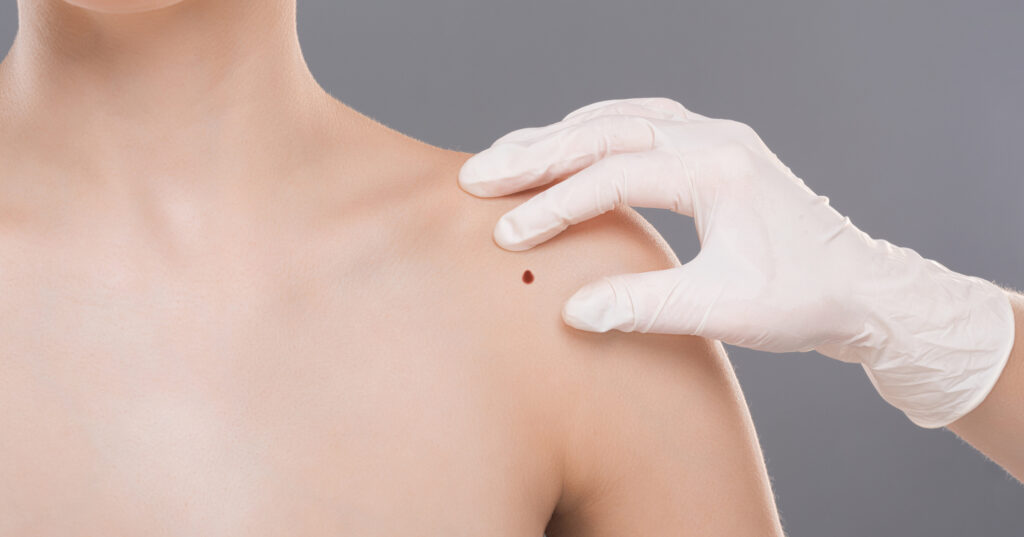After a dermatologist performs a biopsy and diagnoses a skin cancer, they will recommend a treatment plan for the patient. Excisional surgery and Mohs surgery are commonly recommended treatment options for early-stage skin cancers.
Mohs micrographic surgery is considered the gold standard for treating basal cell carcinomas (BCCs) and squamous cell carcinomas (SCCs) in cosmetically important areas, such as the face. Excisional surgery is often the treatment of choice for early basal cell carcinomas, squamous cell carcinomas and early-stage melanomas (in situ). We asked our expert about the pain associated with these surgeries.
Q. Are Mohs surgery and excisional surgery for skin cancer treatment painful?
Jesse M. Lewin, MD: Usually, Mohs surgery and excisional surgery are not very painful. Certain areas of the body (such as the palms of the hands, soles of the feet and around the nose and mouth) can be more sensitive than other areas of the body when it comes to injecting a local anesthesia. But within a few seconds, the anesthetic will take effect and these areas become completely numb.
The type or stage of skin cancer does not impact the amount of pain you may experience immediately following surgery. These factors can affect pain during reconstruction, however. Depending on the size and location of the wound, the repair may be done using flap surgery. In the case of a more aggressive skin cancer where a wider or deeper removal may be required, there can be more pain associated with the reconstruction done to close the wound.
Pain tolerance is sometimes influenced by factors including the patient’s age, sex and genetics. For example, a young child may have a lower pain threshold compared to an adult. Women may report more sensitivity to pain than men. Stress and patient expectations can also play a role. Patients experiencing a high level of stress prior to surgery and those anticipating severe pain may report more pain. Overall, how a patient experiences pain varies; it’s hard for physicians to generalize how you’ll feel.
Nevertheless, pain from skin surgery can almost always be readily controlled with non-narcotic pain relievers such as Tylenol or nonsteroidal anti-inflammatory drugs such as Motrin, Advil or Aleve. These medications can be taken separately or together if one alone does not relieve the patient’s pain. After surgery, your dermatologist should review pain management and aftercare instructions with you.
About the Expert:
 Jesse M. Lewin, MD, is chief of Mohs micrographic and dermatologic surgery and program director for the Micrographic Surgery and Dermatologic Oncology Fellowship Program at Icahn School of Medicine at Mount Sinai.
Jesse M. Lewin, MD, is chief of Mohs micrographic and dermatologic surgery and program director for the Micrographic Surgery and Dermatologic Oncology Fellowship Program at Icahn School of Medicine at Mount Sinai.
Additional Resources





